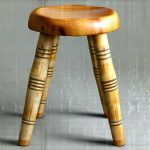The modern wellness landscape often focuses on restrictive diets and intense exercise regimes, but rarely do we address the impact of reintroduction to normal eating after periods of restriction – particularly during weekends. Many individuals who diligently follow healthy (or even overly-restrictive) eating plans during the week experience a disruption in bodily functions when they allow themselves more freedom on Saturday and Sunday. This isn’t necessarily about “cheating” or lacking willpower; it’s often a physiological response to fluctuating intake, one that can significantly impact digestive health and specifically, what many individuals describe as “bathroom rhythm loss.” The term refers to the unpredictable changes in bowel movements – ranging from constipation to diarrhea – experienced after periods of relaxed eating.
This phenomenon is incredibly common, yet frequently dismissed or attributed to other causes like stress or food intolerances. While those factors can play a role, they often aren’t the primary driver behind these fluctuations. It’s crucial to understand that our digestive systems are remarkably adaptable but also thrive on consistency. Sudden shifts in dietary fiber, fat content, sugar intake, and even fluid consumption – typical features of “weekend recovery eating” – can throw off this delicate balance. This article will explore the mechanisms behind bathroom rhythm loss caused by weekend recovery eating, providing insight into why it happens and offering strategies to mitigate its effects without resorting to further restriction or guilt.
The Gut’s Response to Dietary Fluctuations
Our digestive system is a complex ecosystem where bacteria play a vital role. These gut microbes flourish on specific types of fuel – primarily fiber from fruits, vegetables, and whole grains. When we consistently restrict certain food groups during the week (a common feature of many diets), we inadvertently starve some bacterial populations while potentially overfeeding others. This imbalance can lead to dysbiosis, a disruption in the healthy composition of gut flora. – Dysbiosis can manifest as bloating, gas, altered bowel habits, and even impact mood and immune function.
Weekend recovery eating often involves a sudden influx of foods that were previously limited – think pastries, processed snacks, larger portions, or higher-fat meals. This shift in fuel sources drastically changes the environment within the gut. The bacteria accustomed to a low-fiber, low-sugar diet suddenly encounter an abundance of fermentable carbohydrates and fats. – This can cause rapid fermentation, leading to gas production, bloating, and altered bowel motility (the speed at which food moves through the digestive tract). Furthermore, the increased fat content can slow down digestion, contributing to constipation, while excessive sugar intake may draw water into the intestines, potentially causing diarrhea.
It’s important to recognize that this isn’t necessarily a sign of a “bad” gut, but rather a demonstration of its adaptability and sensitivity. The gut is attempting to adjust to the new influx of nutrients, but it needs time to recalibrate. Consistency is key for maintaining a stable and thriving gut microbiome. The more erratic our eating patterns are, the more challenging it becomes for the gut to maintain equilibrium – leading to the unpredictable bathroom habits many experience. bathroom disruption can also contribute to this.
Understanding Weekend Recovery Eating Patterns
Weekend recovery eating isn’t always about “giving in” to cravings; it’s frequently rooted in psychological and physiological factors. Many individuals who restrict during the week feel deprived, creating a strong desire for previously forbidden foods. This can lead to binge-restrict cycles where periods of strict dieting are followed by uncontrolled consumption on weekends. – It’s a natural response to deprivation, but one that ultimately perpetuates the cycle of digestive upset.
Beyond psychological factors, there’s also the issue of physiological rebound. When we severely restrict calories or macronutrients for extended periods, our bodies can downregulate metabolic processes and alter hormone levels. This means that even moderate increases in food intake on weekends can feel significant to a body accustomed to deprivation. – The hormonal shifts associated with stress (often amplified by restrictive dieting) can also impact digestion, further contributing to bathroom rhythm loss. bathroom urgency may be exacerbated during these times.
Finally, it’s essential to acknowledge the social aspect of weekend eating. Many social events revolve around food, making it difficult to maintain strict dietary adherence. The pressure to participate in these activities can lead to overconsumption or choices that deviate from usual healthy habits. It’s not about demonizing social gatherings; it’s about finding a balance between enjoying life and maintaining digestive health. stool rhythm loss can often be linked to these changes in routine.
Addressing the Root Cause: Dietary Consistency
The most effective long-term solution for bathroom rhythm loss caused by weekend recovery eating is increasing dietary consistency. This doesn’t mean eliminating all treats or adopting a rigid diet. It means minimizing extreme fluctuations in food intake throughout the week, including weekends. – Instead of drastically restricting during the week and then “letting loose” on weekends, aim for moderate and balanced meals seven days a week.
Here’s how to achieve greater consistency:
1. Identify your restrictive patterns: What foods or food groups do you typically cut out during the week?
2. Gradually reintroduce those foods in moderation: Start with small portions and observe how your body responds.
3. Focus on balanced meals: Ensure each meal includes a source of protein, healthy fats, complex carbohydrates (fiber), and plenty of fruits or vegetables.
4. Plan ahead for social events: Decide what you’ll eat beforehand to avoid impulsive choices.
The goal isn’t perfection but progress towards a more sustainable and balanced eating pattern that supports digestive health. Remember, small changes can make a significant difference over time. bathroom routine loss is often preventable with this approach.
The Role of Fiber & Hydration
Fiber is the cornerstone of healthy digestion. It adds bulk to stool, promotes regularity, and feeds beneficial gut bacteria. However, fiber intake needs to be consistent – sudden increases in fiber can actually exacerbate digestive issues. – During weekend recovery eating, individuals often consume more processed foods with low fiber content, coupled with increased sugar and fat. This can disrupt the delicate balance of fiber needed for optimal bowel function.
Alongside adequate fiber intake, hydration is paramount. Water helps soften stool, making it easier to pass through the digestive tract. Dehydration, common during travel or busy weekends, can contribute to constipation. – Aim to drink at least eight glasses of water per day, and increase your fluid intake if you’re physically active or experiencing hot weather. digestive delay can be worsened by dehydration.
To optimize fiber and hydration:
1. Incorporate fiber-rich foods into every meal: Fruits, vegetables, whole grains, legumes, nuts, and seeds are excellent sources.
2. Increase your water intake gradually: Don’t try to drastically increase your fluid consumption overnight; start with an extra glass of water per day.
3. Consider prebiotic-rich foods: These foods (like garlic, onions, bananas) feed beneficial gut bacteria, further supporting digestive health.
Managing Weekend Indulgence Without Disruption
Complete restriction is rarely sustainable or enjoyable, and it often backfires by leading to increased cravings and binge eating. Instead of viewing weekend indulgence as a threat to your digestive system, focus on mindful consumption. This means savoring each bite, paying attention to your body’s fullness cues, and choosing foods that genuinely satisfy you without causing discomfort. – It’s about finding balance between enjoyment and well-being. bathroom rhythm loss can often be avoided with mindful eating.
Here are some strategies for managing weekend indulgence:
1. Practice portion control: Enjoy your favorite treats in smaller portions.
2. Pair indulgent foods with healthy options: For example, enjoy a slice of cake alongside a serving of fruit or yogurt.
3. Chew your food thoroughly: This aids digestion and allows you to savor the flavors more fully.
4. Listen to your body’s signals: Stop eating when you feel satisfied, not stuffed.
Ultimately, bathroom rhythm loss caused by weekend recovery eating is a signal that your digestive system needs consistency and balance. By addressing the root causes – dietary fluctuations, fiber deficiency, dehydration, and restrictive patterns – you can restore healthy bowel function and enjoy food without fear or guilt. It’s about cultivating a more compassionate and sustainable relationship with both your body and your diet.


















